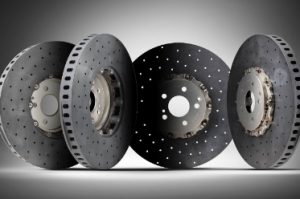New boss of tissue maker laments ‘disappointing’ first report

The recently-appointed chief executive of Lancashire tissue maker Accrol Group has expressed disappointment over the performance of the company in his first communication with shareholders, although “significant progress” is being made in its turnaround plan.
Following suspension of trading in the Blackburn company’s shares on the AIM in October, they were relisted in November with an £18m placing.
A statement said today: “This has been a difficult period for the group and its shareholders and a range of business challenges are now being addressed by a new executive leadership team. These will take some time to resolve but progress is being made.”
In the six months to October 31, the company incurred an operating loss of £5.7m compared to a reported operating profit of £3.9m in the prior year first half. Pre-tax losses amounted to nearly £6m compared to a £3.1m in the same period last year.
Revenue increased by 13.1% to £72.3m (H1 FY17: £63.9m), although gross profit declined by 34.7% to £11.9m (H1 FY17: £18.2m). Adjusted EBITDA reduced by £8.7m to a loss of £1.6m (H1 FY17: profit £7.1m). Net debt rose by £9.4m to £29.3m (H1 FY17: £19.9m).
Chief executive Gareth Jenkins, who was appointed in September, said: “It is with disappointment that I have to address the fact that the performance of and short-term outlook for the group have been so contrary to prior expectations. I do believe, however, that the capabilities of this business are significant and, if well managed, it can deliver a considerably improved performance in the medium term.”
Jenkins said the group’s recent problems had arisen from rising costs of pulp, the adverse effects of forward hedging of the US dollar for paper purchases which protected results immediately after the Brexit-inspired sterling devaluation.
There were significant ongoing, fixed period USD financial hedges, however, were taken out at rates which have become adverse to current market spot rates.
These hedges are negatively impacting the Group’s financial performance in the short term.
There has also been internal cost growth – increases in the fixed cost base as a consequence of the new logistics arrangements at Skelmersdale, the new Leyland plant and changes to shift patterns in mid-2017, at a time when the business was managing an overly complex product portfolio.
But he added: “I have met personally the group’s major customers and am encouraged by the positive attitude they have to developing further business opportunities with Accrol, despite the recent service challenges.
“I have also met the froup’s major suppliers. They remain supportive of doing business with Accrol and of working with us on our ongoing product reformulation plans.”








